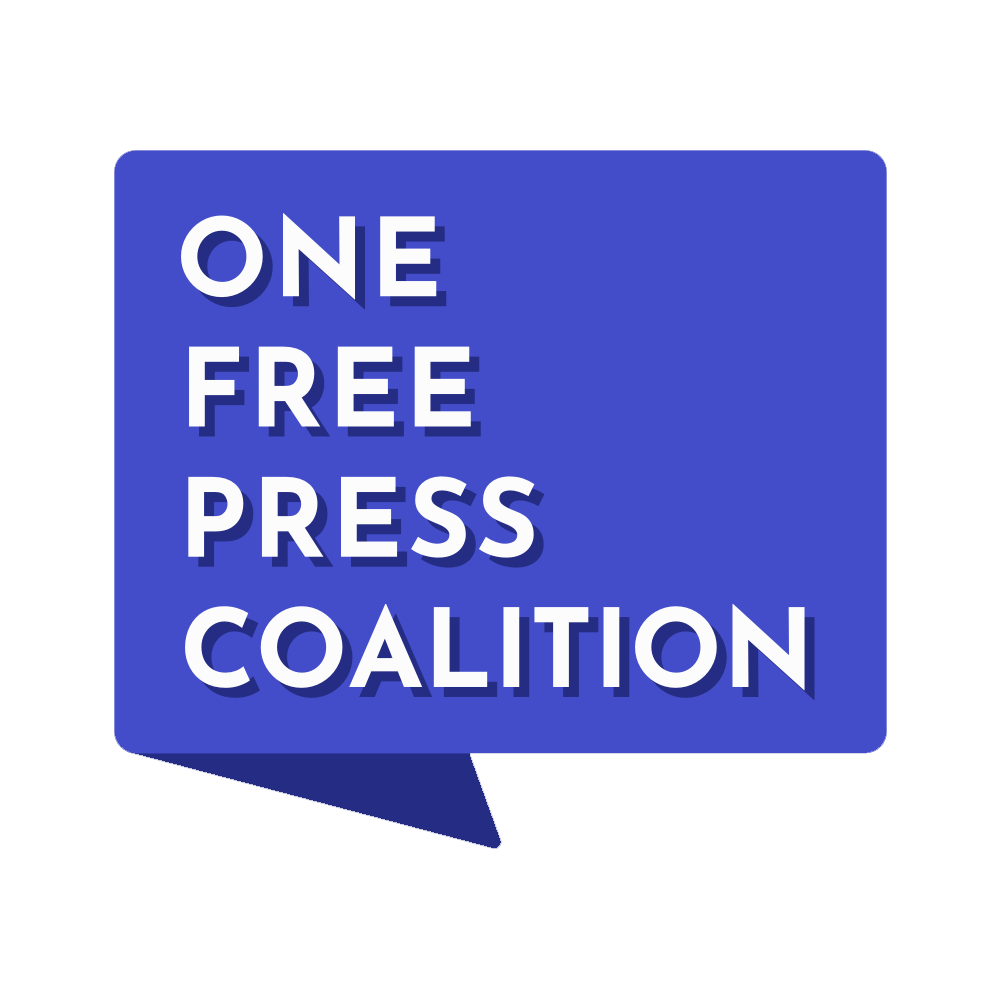On October 1, 2019 the Coalition launched the eighth monthly "10 Most Urgent" list (ranked in order of urgency), calling attention to the most pressing cases of journalists under attack for pursuing the truth.
1. Jamal Khashoggi (Saudi Arabia)
One year without resolution in high-profile, brazen Khashoggi killing. As of October 2, one year has passed without justice or resolution for the death of Washington Post columnist and Virginia resident Jamal Khashoggi, who was murdered inside Istanbul’s Saudi consulate. The U.S. executive branch and UN have not gotten involved, despite a congressional call for investigation and CIA findings pointing blame at Saudi Arabia’s crown prince.
2. Afgan Mukhtarli (Azerbaijan)
Diabetic journalist on hunger strike in Azerbaijan prison. In September, journalist Afgan Mukhtarli with Type 2 diabetes went on a hunger strike in protest of Azerbaijan prison conditions. His six-year prison sentence began in January 2018, after authorities abducted the reporter in Georgia and charged him with illegally crossing the border and carrying contraband. He had been living in exile in Georgia since 2014 due to death threats in relation to his investigative reporting on corruption.
Jesús Medina (Credit Espacio Public)
Urgent medical attention needed for Bahrain blogger serving life sentence. Jaw Central Prison has continuously denied critical medical treatment (as well as prescriptions, toiletries and hygienic products) for Abduljalil Alsingace, who suffers daily chest pain and was sentenced in June 2011 to life imprisonment for “plotting to topple the monarchy.” One of several high-profile government critics arrested for pro-reform protests, Alsingace had written critically about human rights violations, sectarian discrimination and repression of the political opposition on his blog, Al-Faseela (Sapling).
4. Marzieh Amiri (Iran)
Imprisoned Iranian reporter suffers epilepsy and deteriorating health. Last month Iranian authorities allowed Marzieh Amiri a hospital visit to monitor epilepsy, after she had been denied proper medical attention in the months since her arrest for covering May Day demonstrations for Tehran-based newspaper Shargh Daily. Family members were not allowed contact during the medical care and were responsible for the bill. In August, Tehran sentenced Amiri to 10 and a half years in prison and 148 lashes for charges of “assembly and collusion against national security,” “propaganda against the state” and “disturbing public order.”
Austin Tice (Credit Tice Family)
Kyrgyz journalist’s health worsens after nine years in prison. In addition to his deteriorating health and limited access to medication, Azimjon Askarov’s letters home from prison have noted punishment for detainees after visiting days. The ethnic Uzbek award-winning journalist has served nine years of a life sentence for reporting on human rights violations. In July, a Kyrgyz court ruled to uphold the term despite persistent international condemnation.
6. Jesús Medina (Venezuela)
Imminent court date for Venezuelan photographer jailed one year without trial. Freelance photographer Jesús Medina has an October 3 court appearance, after serving more than a year in the Ramo Verde military prison pre-trial. Venezuela has charged him with criminal association and inciting hate. Medina has faced harassment previously while reporting.
7. Austin Tice (Syria)
No answers after seven years in case of U.S. freelancer detained in Syria. Seven years ago, American freelance journalist Austin Tice was taken captive in Syria. The Georgetown University law student had spent the summer of 2012 reporting on civilian life during the country’s escalating conflict and was detained at a checkpoint outside Damascus. Tice’s family and the U.S. government have stated that he is alive despite there being no claim of responsibility for his captivity.
Mahmoud Hussein (Credit Al Jazeera)
8. Mahmoud Hussein (Egypt)
Nearly three years of imprisonment sans trial for Egyptian Al Jazeera journalist. For more than 1,000 days, Mahmoud Hussein has served pre-trial detention in Cairo’s Tora Prison Complex. The journalist was arrested on December 23, 2016 on anti-state and false news charges, following an Al Jazeera documentary about conscription in Egypt. The jail time has been repeatedly renewed every 45 days, according to the local press freedom group Journalists Against Torture and a social media post from Al Jazeera director Yasser Abu Hilalah.
9. Azory Gwanda (Tanzania)
Almost two years of uncertainty regarding Tanzanian journalist’s condition. A freelance journalist investigating mysterious killings in rural Tanzania, Azory Gwanda has been missing since November 21, 2017. The government has failed to conduct a credible investigation or disclose what it knows. On July 10, Tanzanian Foreign Minister Palamagamba Kabudi said in an interview that Gwanda had “disappeared and died,” but backtracked amid requests for clarification.
10. Hajar Raissouni (Morocco)
Personal matters cited as reason for Moroccan reporter’s arrest. Moroccan authorities are employing journalists’ personal information as grounds for arrest, as in the case of Hajar Raissouni, a reporter for independent news website Akhbar al-Youm. She was taken into custody on August 31 while leaving her doctor’s office with her fiancé, charged with sex outside of marriage and illegal abortion. She then endured questioning about her political writing and connection to a newspaper colleague.
